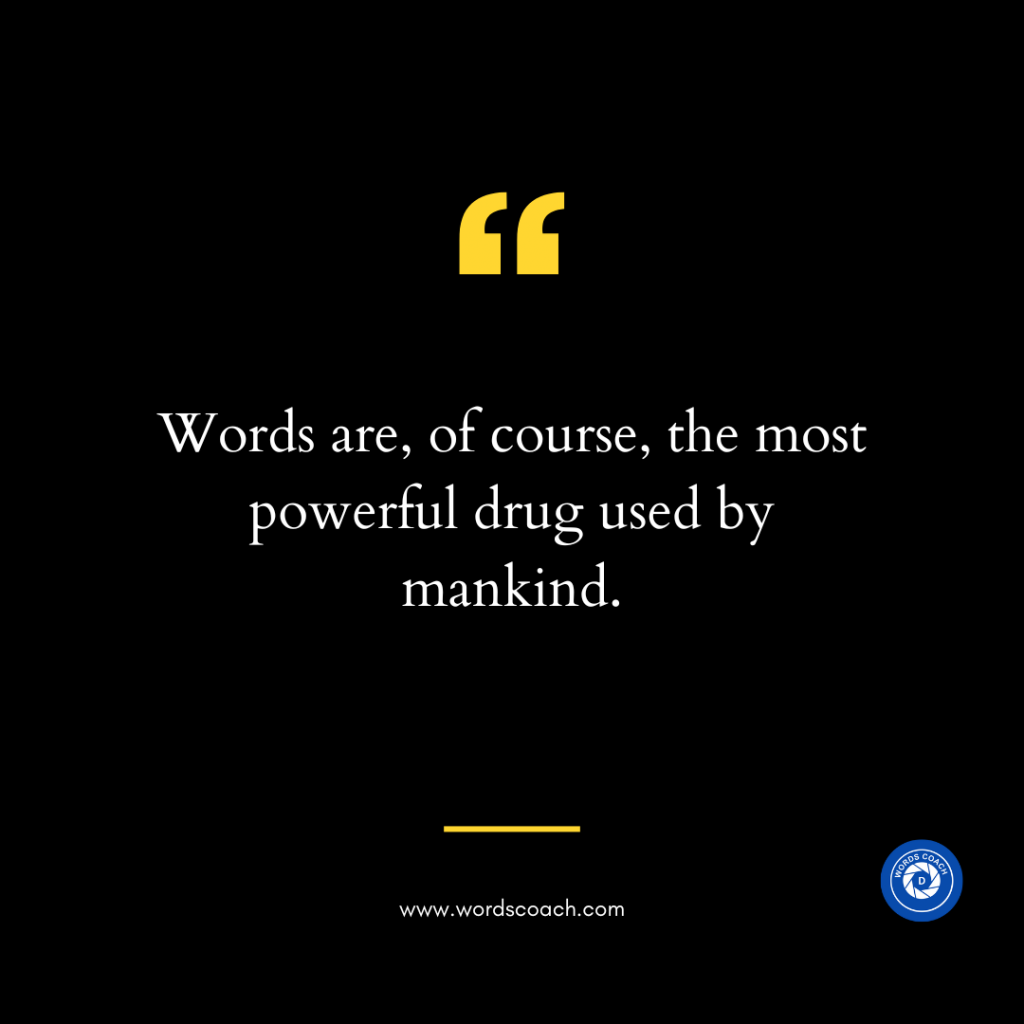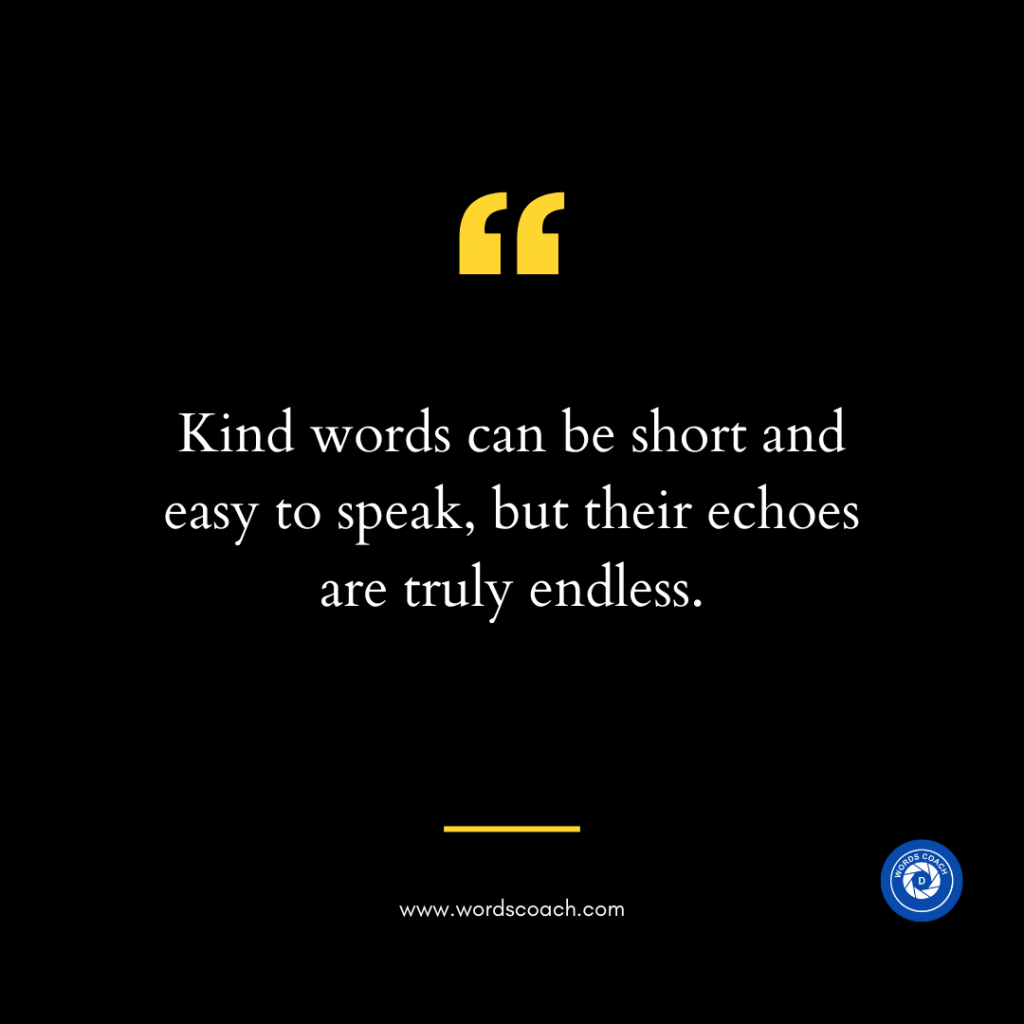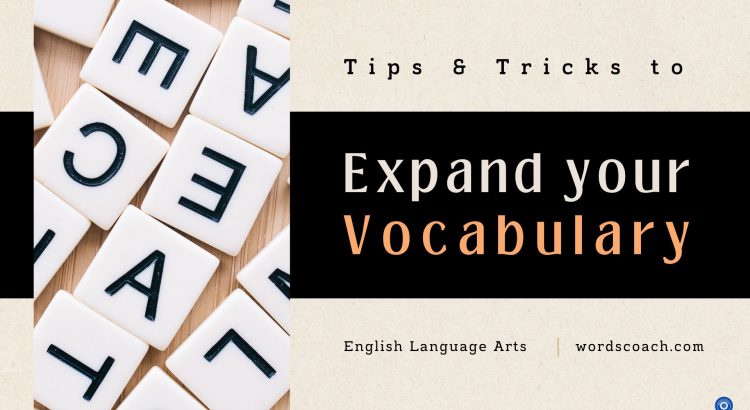Words
Words are the foundation of any language, and in the case of English, they form an incredibly rich and diverse tapestry of communication. Every conversation, book, song, and speech is made up of words carefully chosen to convey meaning, evoke emotion, and foster connection. English, as a global language, is home to millions of words, from ancient ones rooted in history to modern terms shaped by technology and culture.
Words That Start With
Adverbs that start with
The Power of Words
Words have the unique ability to influence thought, inspire change, and connect people. A single word can change the tone of a sentence, alter a narrative, or provide comfort. They can be simple or complex, short or long, but each one plays a role in shaping how we express ourselves.
“Words are, of course, the most powerful drug used by mankind.”
— Rudyard Kipling
This quote highlights the immense power of words to move, motivate, and even heal. They can bring people together through shared understanding or tear them apart when misunderstood. The words we choose can build bridges or create divides, emphasizing their importance in everyday communication.
Types of Words in English
English words fall into several categories based on their function in a sentence. Understanding these categories helps in grasping how sentences are structured and meanings are conveyed:
- Nouns: Words that name people, places, things, or ideas (e.g., “dog,” “happiness,” “London”).
- Verbs: Words that describe actions or states of being (e.g., “run,” “is,” “think”).
- Adjectives: Words that describe or modify nouns (e.g., “beautiful,” “tall,” “brave”).
- Adverbs: Words that modify verbs, adjectives, or other adverbs, often indicating manner, time, or degree (e.g., “quickly,” “very,” “yesterday”).
- Pronouns: Words that take the place of nouns (e.g., “he,” “they,” “it”).
- Prepositions: Words that show relationships between nouns or pronouns and other words in a sentence (e.g., “on,” “in,” “over”).
- Conjunctions: Words that connect clauses, sentences, or words (e.g., “and,” “but,” “because”).
- Interjections: Words that express strong emotion or surprise (e.g., “Wow!” “Oh!” “Yikes!”).
The Beauty of Synonyms and Antonyms
One of the fascinating aspects of the English language is the richness of synonyms and antonyms. Synonyms are words that have similar meanings, while antonyms are words with opposite meanings. This diversity allows for more precise communication and helps to convey the exact tone or feeling desired.
For example, the word “happy” has numerous synonyms like “joyful,” “elated,” “content,” and “cheerful.” On the other hand, antonyms like “sad,” “unhappy,” and “miserable” help to express the opposite emotion.
Idioms and Expressions: The Color of Language
Idioms and expressions add color and flavor to the English language. They are phrases that convey meanings beyond the literal definition of the words used. For example, “spill the beans” means to reveal a secret, and “break the ice” refers to easing a tense or awkward situation.
These expressions often have cultural or historical origins, and while they can be tricky for language learners, they are an essential part of mastering conversational English.
The Power of Word Choice
Choosing the right words is crucial in effective communication. Different words evoke different feelings, and the words we choose can shape the way others perceive us. For instance, consider the difference between saying “I am confident” versus “I am sure.” Both express certainty, but “confident” carries a stronger sense of self-assurance.
Writers, poets, and public speakers spend a great deal of time carefully selecting words to ensure their message resonates with the audience. The right words can make a speech memorable, a poem timeless, or a novel captivating.
The Influence of Words on Thought
Words are more than just tools for communication; they shape the way we think and perceive the world. The famous linguistic hypothesis known as the Sapir-Whorf Hypothesis suggests that the language we speak influences our thought processes. Different languages have unique ways of describing the world, which can, in turn, affect how we experience it.
For example, in some languages, there are multiple words for different kinds of snow, while in English, we just say “snow.” This can shape how people in different cultures view the world around them.
Words are the essence of human communication. They allow us to share ideas, express emotions, and connect with one another on a profound level. Whether spoken, written, or even thought, words have the power to shape our reality.
As English continues to evolve, the power of words remains constant. From ancient proverbs to modern slang, words carry the weight of meaning that defines our experiences and relationships. By choosing words carefully, we can communicate more effectively and positively impact the world around us.
“Kind words can be short and easy to speak, but their echoes are truly endless.”
— Mother Teresa
This quote beautifully encapsulates the enduring impact that words can have. Let us always strive to use them wisely.



